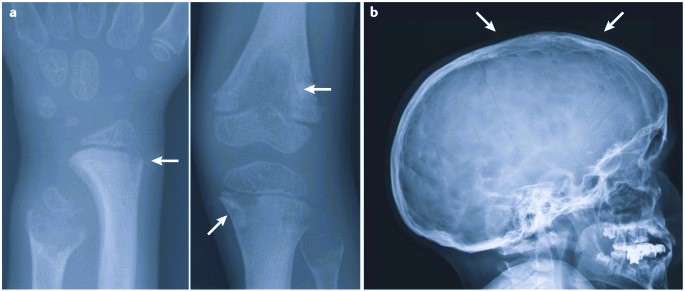Hypophosphatasia: Causes, Symptoms, and Treatment
Discover the causes, symptoms, and treatment of Hypophosphatasia. Learn how to manage this rare metabolic disorder and improve quality of life with effective care strategies.


Hypophosphatasia is a rare genetic disorder that affects the development and maintenance of bones and teeth. It is caused by mutations in the ALPL gene, which leads to a deficiency of an enzyme called alkaline phosphatase. This enzyme is responsible for the mineralization of bones and teeth, so its deficiency results in weakened and poorly developed skeletal structures.
Causes of Hypophosphatasia
Hypophosphatasia is an inherited disorder, meaning it is passed down from parents to their children. It is caused by mutations in the ALPL gene, which can be inherited in an autosomal recessive or autosomal dominant manner. In some cases, the condition may also occur sporadically, without a family history of the disorder.
Symptoms of Hypophosphatasia
The severity and presentation of symptoms can vary widely in individuals with hypophosphatasia. Common symptoms include:
Delayed or impaired bone development
Weak and fragile bones
Short stature
Enamel hypoplasia (defective tooth enamel)
Dental abnormalities
Respiratory problems
Muscle weakness
Pain and fractures
Treatment of Hypophosphatasia
Currently, there is no cure for hypophosphatasia. Treatment focuses on managing the symptoms and improving the quality of life for individuals with the condition. Depending on the severity of the symptoms, treatment options may include:
Supportive care, such as physical therapy and assistive devices, to improve mobility and prevent fractures
Medications to manage pain and improve bone mineralization
Dental interventions to address tooth abnormalities
Enzyme replacement therapy to supplement the deficient alkaline phosphatase enzyme
Orthopedic surgeries to correct bone deformities and fractures
Precautions for Hypophosphatasia
Individuals with hypophosphatasia should take certain precautions to minimize the risk of fractures and other complications:
Avoid activities that may put excessive stress on the bones, such as contact sports
Maintain a healthy diet rich in calcium and vitamin D to support bone health
Practice good oral hygiene and visit a dentist regularly to monitor and address dental abnormalities
Follow the treatment plan prescribed by healthcare professionals
Stay informed about the latest research and advancements in the management of hypophosphatasia
In conclusion, hypophosphatasia is a rare genetic disorder caused by mutations in the ALPL gene. It leads to a deficiency of alkaline phosphatase enzyme, resulting in weakened bones and teeth. While there is no cure for hypophosphatasia, treatment options are available to manage symptoms and improve quality of life. By taking precautions and following a comprehensive treatment plan, individuals with hypophosphatasia can lead fulfilling lives.
